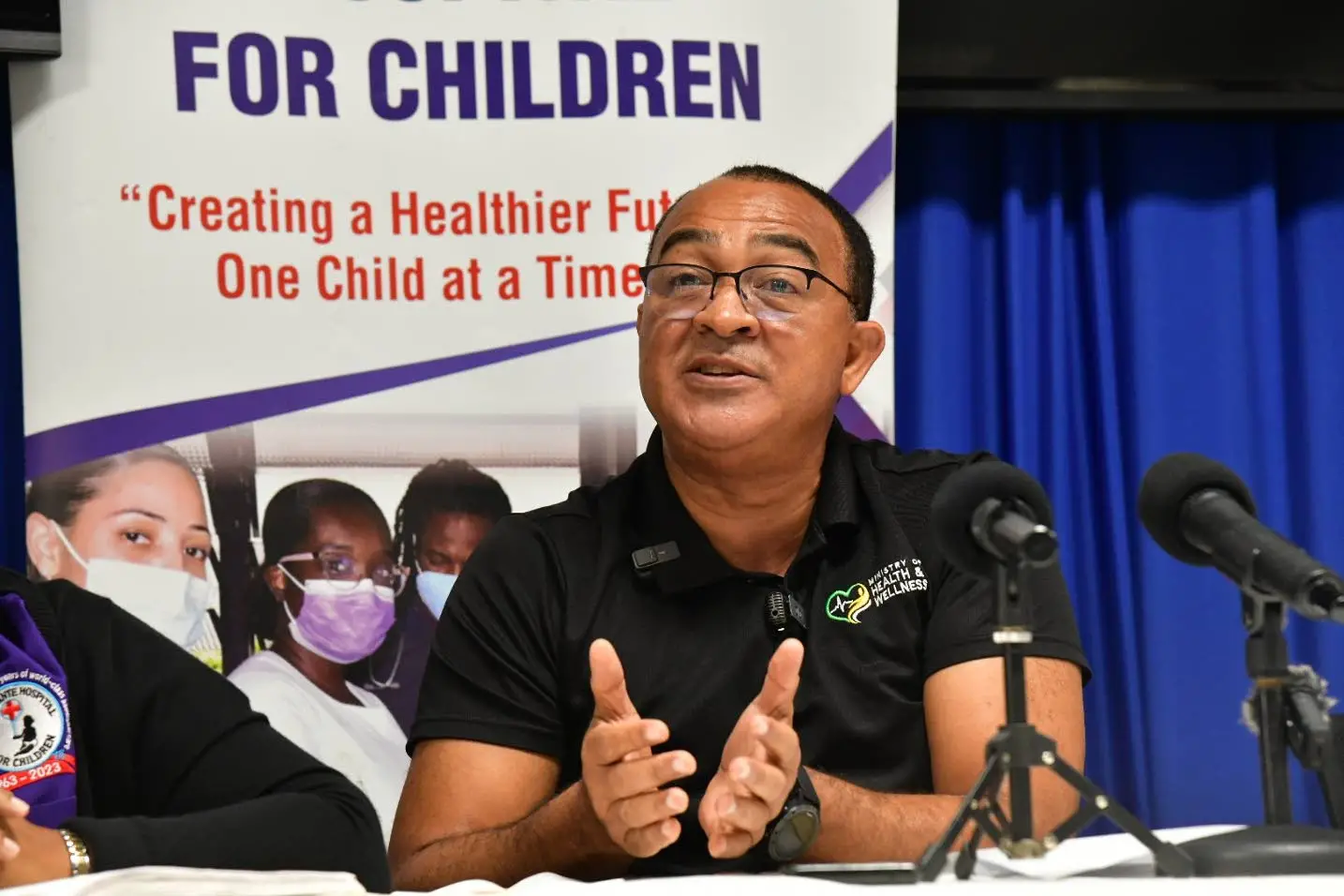
Surgery solution
UHWI to take 11-year-old scoliosis patient
An 11-year-old girl whose spinal surgery at Bustamante Hospital for Children (BHC) was postponed due to inadequate conditions at the operating theatre received promising news on Thursday from Health and Wellness Minister Dr Christopher Tufton.
The minister said that arrangements have been made for the surgery to be conducted at University Hospital of the West Indies (UHWI). He noted, however, that if it cannot be done by a visiting overseas medical team, who are slated to leave the island tomorrow, then another solution will be found.
Tufton made the announcement at a news conference called at BHC in response to a
Gleaner report on Thursday highlighting the plight of Ajanae Parchment who had been scheduled for surgery to correct an “aggressive” form of scoliosis. However, the newspaper reported that her mother, Sandra Aitcheson, was told last week by an orthopaedic surgeon that the procedure could not be conducted because the operating theatre had no air-conditioning.
Tufton said that when he was informed about the situation on Wednesday, he made some inquiries and, after reading the Gleaner story on Thursday morning he made more inquiries, then followed up with some other hospitals and the team at BHC.
“I’m happy to report that as of now the University Hospital of the West Indies has consented, based on discussions, and with the lead clinician there Dr Carl Bruce having consulted with his team, to make an operating theatre available, to make all the necessary equipment available, to make the supporting team staff available, so that if the team that is here… that is leaving tomorrow, is able to facilitate the particular case then the patient will be facilitated for the surgery to take place,” he said.
While the health minister’s announcement most likely provided relief to the mother and her child, it did not prevent Dr Robert Brady, who heads the medical mission from the United States, from expressing frustration with some of the health infrastructure challenges he and his team have encountered.
“I come here because I want to help the people… I want to do good, that’s why I come here twice a year… I have been coming here for 20 years. There are clear infrastructure issues that need to be solved,” Dr Brady said after he joined a press conference following completion of one of the scheduled mission surgeries.
Dr Brady said when he heard about the air-conditioning issues two months ago he had made a request for the problem to be fixed.
However, “my request was ignored,” he said.
But the Jamaican-born orthopaedic surgeon and spine specialist insisted that the situation is unacceptable, as Jamaica, he said, is the most technologically advanced Caribbean island in health-care, and as such “our hospitals have to be the gold standard”.
“People come from other islands so we can take care of their children because [they know the value of] our healthcare system…and we have to maintain that, so we have to go through the hospitals and make sure the autoclave systems are working. We can only do single instruments now, that’s an issue. The air-conditionings have to work and we understand… there’s other things that we need to do to fix it. But these need to be addressed, fixed, and the money needs to go into helping these children,” he said.
“I come here twice a year, I bring a whole team and we donate thousands of dollars of equipment that we want to help these people. If you guys have to put the infrastructure in place to allow us to do that, it’s absolutely necessary,” he said.
In response, Dr Tufton acknowledged that the country has a perennial, systemic problem with the maintenance of equipment and medical plants, but noted that the Government has been spending hundreds of millions to upgrade public health infrastructure.
He again pointed out that, to address some of the issues with poor maintenance, the Government has made the decision, starting in another month, to lease equipment instead of purchasing them.
“One of the problems we have that you don’t have in the US — and I fully appreciate that you won’t understand that context, but I think it’s important to share — is that while in the US there can and is available the capacity to maintain equipment… and those equipment are either depreciated based on useful life and then taken out and replaced or serviced routinely by service men and institutions that are readily available, in Jamaica, as is the case in similar countries like ours, people have to fly in from Germany, from Canada, from New York,” Tufton said.
“We’re told that when parts are down, they have to be manufactured and it takes five months…we have to find a way around that,” he added.
He said that under the lease arrangement, no equipment will be acquired unless there’s an extended service agreement, and the outsourcing of maintenance to a firm that carries with it all the technical capacities.
“So the challenges we face here are very different from the ones that you have where you are, and I wish we didn’t have them,” he said.
Dr Tufton said that it was unfortunate that Dr Brady and his team have to work under less than ideal circumstances because he is accustomed to a particular standard in the US.
He insisted, however, that his response is not an attempt at “excusing away” the problem, but “an attempt to elaborate on the context of why we have these issues and why we have to do more to solve them in a more systemic way. And that, I hope, is fully appreciated and understood, and also that we’re taking some steps to address those issues.”
In the meantime, the health minister said the country is grateful for the work of the mission in improving and saving lives “and I want to publicly thank you and your team for your commitment to this cause.”

























